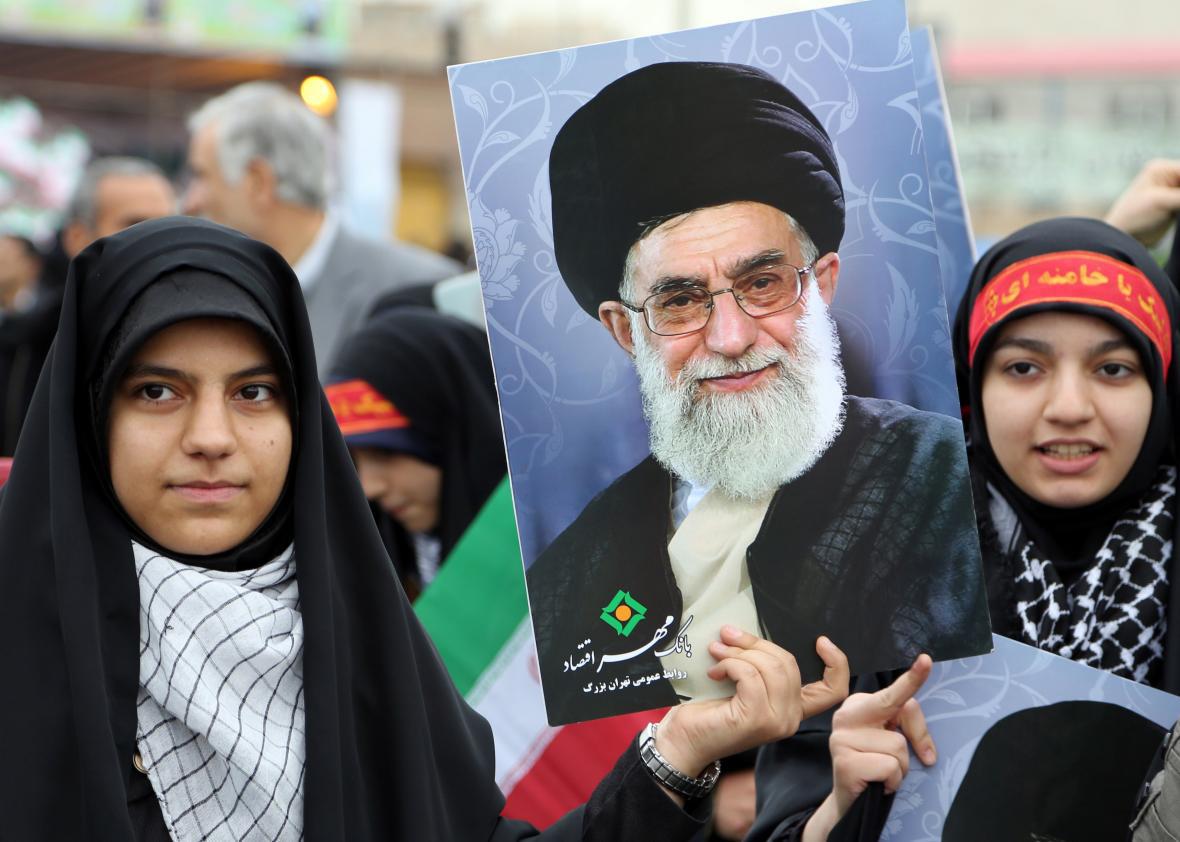Iran’s supreme leader Ayatollah Ali Khamenei weighed in again on the recently negotiated nuclear deal on Monday, but stopped short of taking a firm position on it. In a statement posted on his website, and in somewhat garbled form on his English-language Twitter account, Khamenei insisted that the deal would not allow the U.S. greater influence within Iran, saying, “We blocked this path and will definitely block it in the future. We won’t allow American political, economic or cultural influence in Iran.” Khamenei had previously described Iran as still “180 degrees” opposed to U.S. policies in the Middle East. Today, he also cast some doubt over whether the deal would even be implemented, saying “it is not clear if it will be passed in Iran or in America.”
There’s been a little something for everyone in the supreme leader’s statements since the deal was negotiated in July. He has praised President Hassan Rouhani and his negotiating team for the agreement, but stopped short of explicitly endorsing the deal itself. This has led hardliners like Hossein Shariatmadari, the editor of the conservative newspaper Kayhan and a close Khamenei ally, to argue that the ayatollah is clearly opposed to the accord. More likely, Khamenei is hedging his bets.
While certainly not trusting the United States, the supreme leader may recognize the pragmatic case for sanctions relief as well as the public support for the agreement within Iran. If he were definitively opposed, it’s unlikely the deal would have been negotiated at all. But if the U.S. Congress blocks the deal, his current ambiguous stance allows Khamenei to say that he never trusted the Americans in the first place Similarly, the Iranian parliament has put off its own vote on the deal until the U.S. congress votes. Despite the complaints of hardliners, the Iranian security establishment, including some close allies of Khamenei, have indicated their support. If the U.S. backs the deal, Iran almost certainly will too.
Meanwhile in Washington, the White House likely lost its last chance to have a GOP senator support the deal when Sen. Jeff Flake (R-Ariz) announced his opposition on Saturday. Robert Menendez (D-NJ) is due to announce his position on Tuesday, but is very likely opposed given his past votes on Iran. However, the Washington Post’s whip count puts the current number of senators likely supporting the deal at 30, with 34 needed to uphold President Obama’s veto of a resolution blocking the agreement. Thirteen senators are still holdouts, but the numbers look to be in the White House’s favor. The numbers also look relatively safe for the administration in the House. But it’s still close enough that the White House will continue lobbying, and Khamenei will continue to demur on taking a firm position.
